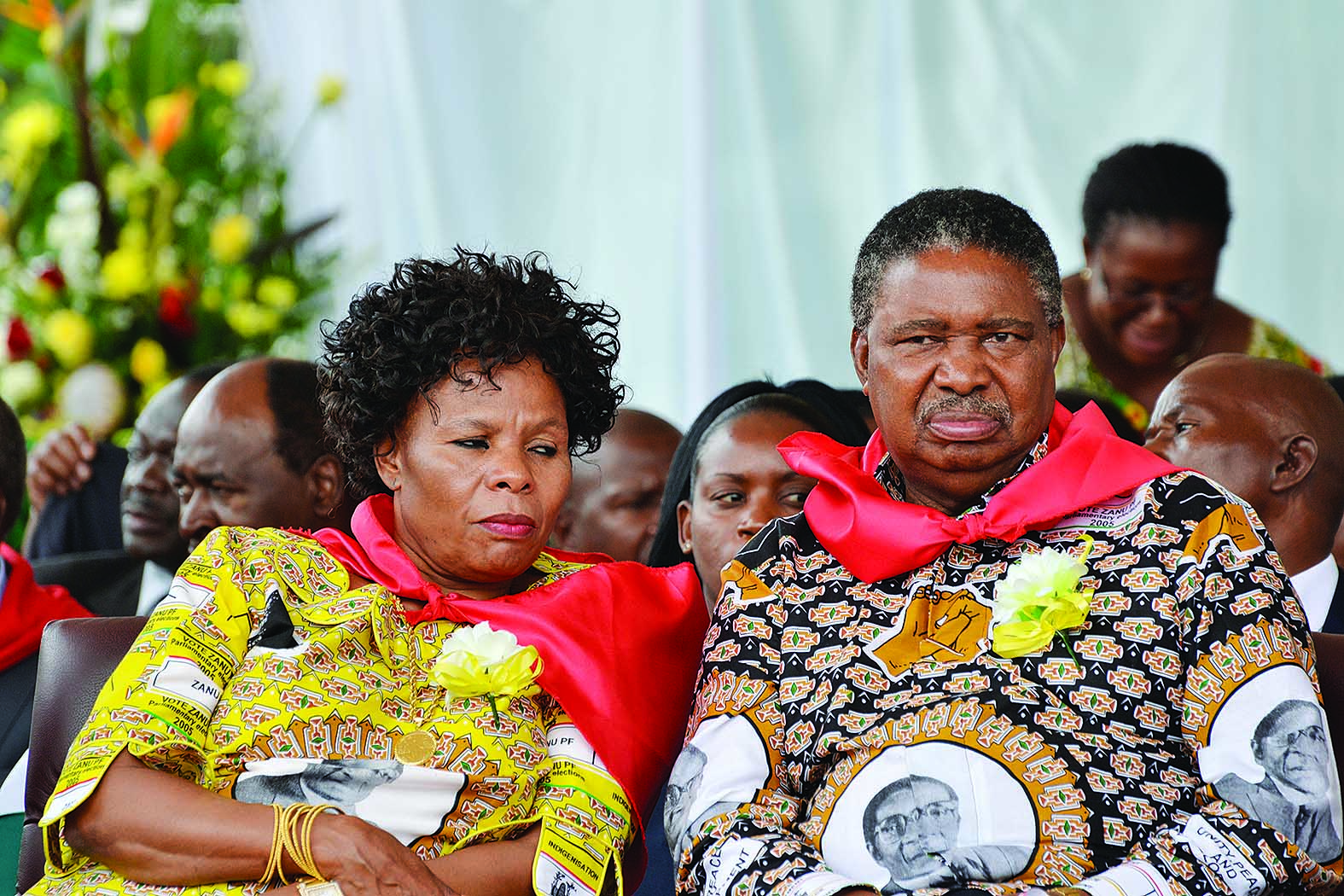
On February 6 2015 it was reported that embattled Vice-President Phelekezela Mphoko brought the house down in Bulawayo when he told his audience that Zesa, and Zinwa’s creation and the subsequent takeover of electricity and water distribution by the two parastatals, had been to Bulawayo’s disadvantage.
The VP, not given to “political language”, had told the truth.
Political language, George Orwell is reputed to have written, is designed to make lies sound truthful and murder respectable, and to give an appearance of solidity to pure wind. The reasons given for Zanu PF’s recent purges are good examples.
Electricity and water tariffs allowed cities when they were responsible for distribution of the two public goods to earn a small profit as retailers of the two, buying in bulk from a then rather lean and efficient Electricity Supply Commission for electricity, and water from their own dams or the relevant ministry. Indeed, bigger cities such as Harare and Bulawayo supplemented their electricity supplies with their own generation from thermal power stations. Then entered the “experts”, from you know where, with some toxic “advice” to a gullible Zanu government.
The advice, based on some misguided concepts on “equitable growth and social justice”, was music to then “socialist ears” in Zanu, more so as the party’s popularity in towns and cities was waning owing to poor economic growth and rising inflation. Basically, it encouraged rural electrification and “growth points” at the expense of cities and towns.
Resources were then diverted for this quixotic enterprise with an eye more for votes and staying in power and less on measurable economic improvement. Zesa was formed. Later, Rural Electrification Agency came into being, to be financed mostly from cities through levies, as would Zimbabwe National Road Administration, all at the expense of city and town treasuries.
Elsewhere in China, where the bureaucrats think for themselves, the opposite was taking place. Urbanisation was in full swing. The lesson Zimbabwe must learn from looking to the East and West is to leave the cities alone. Central government must help them, but should not prey on them. They are in a race with cities in other countries for investment. Their infrastructure, transport included, and service provision must be world-class and competitively priced. It helps if the cities are big. Size matters.
The irony in this whole tragedy is that most Zimbabwean towns are barely “economic growth points” by global standards. Most likely they are just mere villages. The country needed no new ones as its population is so small as to fit in one mega city like London, Tokyo, New York or Lagos. Lagos’ gross domestic product has been estimated at $80 billion compared to Zimbabwe’s $13 billion.
- Chamisa under fire over US$120K donation
- Mavhunga puts DeMbare into Chibuku quarterfinals
- Pension funds bet on Cabora Bassa oilfields
- Councils defy govt fire tender directive
Keep Reading
Mphoko is, therefore, right in his assertion that Bulawayo must be left to run its own affairs (and Tsholotsho its own!). His party must rethink its urbanisation strategy, or craft one, as it most likely does not have any. Bulawayo and Harare must be given back their water, electricity, roads, land/housing accounts and operations. And, of course, 50% of the value added tax and pay as you earn collected in their precincts. That would be responsible devolution.
Earlier on, the enigmatic VP had queried why able-bodied young men spent their days vending in urban streets — selling sweets, water, trinkets, tomatoes, underwear and cigarettes. For that he had come under attack from multitudes, most of them vendors under the patronage of “shrewd” Zanu PF politicians.
The Press and non-governmental organisations had joined the fray. But the good man was right to ask the question, as the United States is running out of workers, especially as vogue US companies such as Apple seek Taiwanese companies to manufacture their iconic fashionable gadgets. The companies open factories in China, employing hundreds of thousands of young people to make hundreds of millions of smart phones and other gadgets.
The partial answer, of course, to Mphoko’s good query, is that his government’s and the region’s policies are to blame. The good man knows that of course, as all of Zapu or former Zapu members do. Indeed as all those booted out of Zanu PF will now agree they know. Corner a “Weevil” alone and it too will agree to the same!
The competition between political parties and within their factions has never been about ideology, as on occasion Information minister Jonathan Moyo has lamented. Part of the problem, apart from keeping the lids of the cans of assorted worms tightly closed, has been or is: who shall sit on the table with the West and enjoy the right to borrow and beg on behalf of the people? And who shall be favoured with a photo opportunity with these illustrious Westerners? Former Tanzanian President Ali Hassan Mwinyi revealed that African presidents crave these photo sessions. Who shall fraternise with the West has been the bone of contention.
Since the West has now found out, the avenues have been opened for much needed policy changes and constructive engagement. Mphoko deserves commendation for opening debate on these important subjects. Our children deserve better than to be vendors, touts or fair game to xenophobes!
On April 17 2015, Press reports indicated that the VP had once again ruffled feathers by asking Zanu PF not to nominate touts and lodgers as candidates in the June by-elections.
The VP is right of course. There is a reason why the Communist Party of China now recruits only the brightest graduates to its party ranks; not touts and vendors. Zanu PF is best advised to follow suit. And so should MDC formations, of course, though in Zimbabwe touts and vendors may be graduates!
lTapiwa Nyandoro can be contacted on [email protected] or [email protected]











